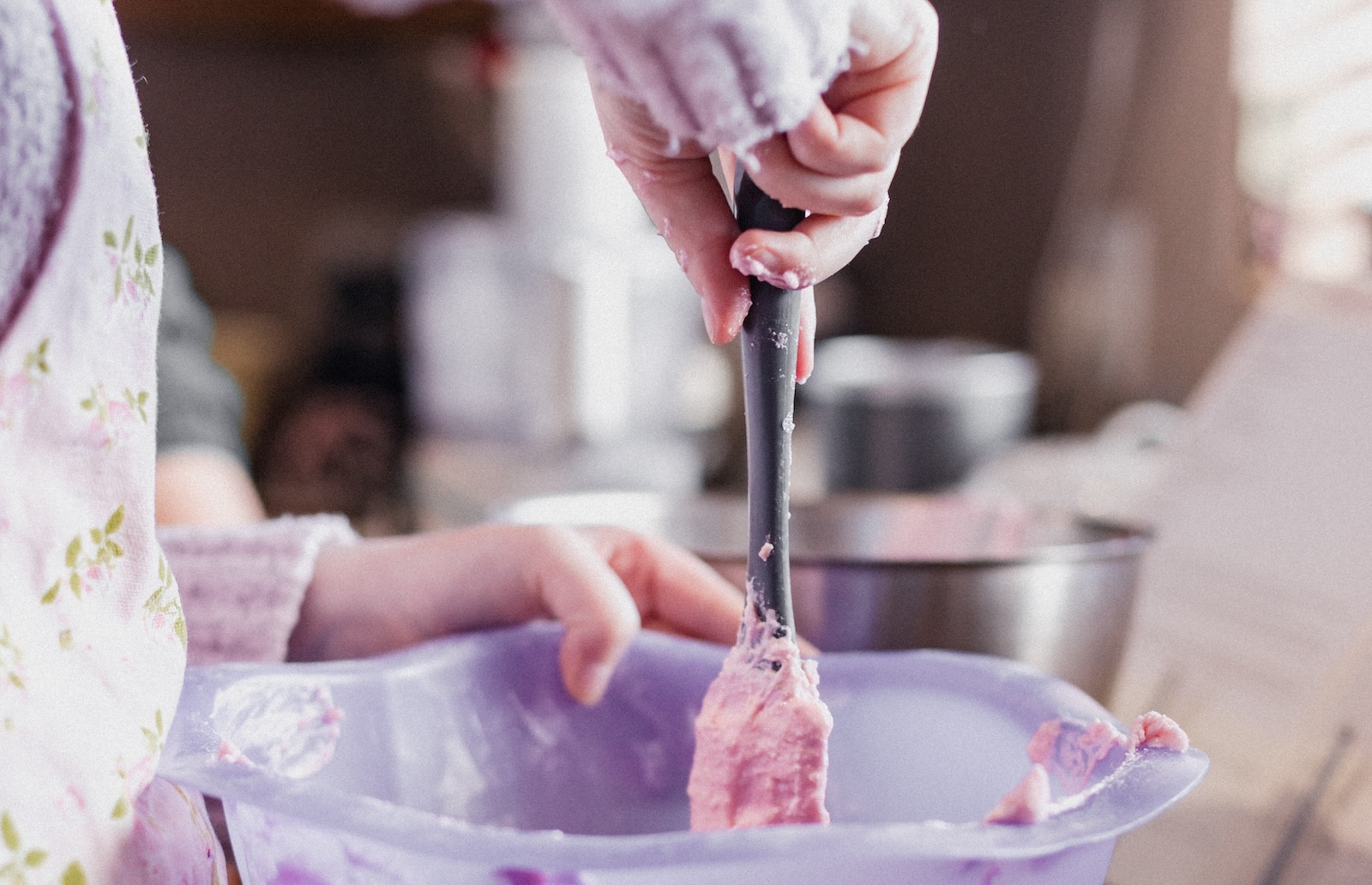SEX & SPATULAS by Pat Ryan

Betty never thought food would be important. She never thought about food at all, certainly not about cooking it. Since leaving home, she ate most meals in the way she liked best: with a book or magazine on the table, her eyes on the page, not the plate.
Now Betty was surprised to find herself interrogated by acquaintances on what she ate and how she prepared it. They fussed at her and shook their heads at her lack of interest in the variety of options for inspired, home-made dishes.
No wonder you’re alone every night, they said.
What could she do but learn to cook?
Like the anthropologist she was, Betty set out to study this culinary country. She bought a box of used cookbooks for $1 at a yard sale. Beginning with the oldest ones, she read the introductions methodically while patting Émile, her French poodle, and sipping screwdrivers. (Betty knew how to mix a potent drink.)
In “The Alice B. Toklas Cookbook,” she read that men in France play an active part in everything pertaining to the kitchen, occasionally even cooking themselves. Still, the husband’s main role was to spur on his wife by offering her constant gentle criticism.
“A woman can be known,” Toklas wrote, “for the manner in which she prepares those sublimated dumplings known as Quenelles.”
The recipe for quenelles had a bossy, “I dare you” tone. The eggs demanded attention. Five separated yolks must be added one at a time to the sauce and beaten “with a high stroke” for
twenty minutes. Hours of heating, cooling, boiling and poaching followed. No joy. Betty tossed the book back into the box.
Obviously, cooking was a process. She would be required to purchase items like measuring cups and sharp knives. (Betty was left-handed, unfortunately.)
This project would interfere with an essential one on her list: dating and sex. And yet, could one possibly enhance the other?
In the “Single Girl’s Cookbook,” Helen Gurley Brown — “the woman who shocked ’60s America by proclaiming that unmarried women could enjoy sex” — wrote: “You must cook well.” Through cooking, she predicted, a single girl can be loved and appreciated by friends and be “the utter darling of a lot of people.”
That night, Betty dreamed about Gurley Brown, who handed her an onion and a paring knife and commanded, “Don’t be a mouseburger! Chop!”
Obediently, Betty began to chop the onion with intense sideways motions, stopping only to suck drops of blood from her freshly sliced fingers. As punishment for her ineptitude, she was thrown into a circle of men who spanked her with spatulas. The Spatula Men forced her to walk across a row of cheese graters until her feet were also bleeding. Then she was dumped into a vat of lime jello soup. To keep from drowning, she grabbed onto a log that turned out to be a mock turtle.
She awoke feeling greasy. A hot shower helped slightly. She didn’t rally until lunchtime, when a neighbor called and invited her to a party “where there would be many hungry, eligible bachelors.” It was to be a potluck.
“I suppose you’ll bring cheese and crackers, as usual?” her neighbor asked.
“No,” Betty replied. “I’m going to make something myself from scratch … a dessert.”
After she hung up, she moaned, “Why did I say that?” She had managed to get through only the appetizers in the gourmet cookbooks. But a dessert! How memorable that would be.
She flipped through pages of photographs of poached pears, gooey cakes, bouffant meringues. Suddenly, up popped a recipe for Proust’s madeleines. When eating madeleines dunked in tea, Proust wrote, “the vicissitudes of life had become indifferent to me, its disasters innocuous.” He ceased to feel mediocre.
Betty knew it was just the right thing. How they would praise her, their utter darling.
The day of the party arrived. As if watching herself serenely from a whipped-cream cloud overhead, Betty prepared the batter, spooned it into a special, brand-new nonstick pan. The modest little cakes needed to bake only twelve minutes.
When the timer buzzed, Betty slid the madeleines out of the oven. She touched one on its tiny plump belly. It was springy and warm. She ate it.
She ate them all, one by one — no, she hesitated at the last one. She offered it to Émile, her poodle. He devoured it in one gulp, licked the floor, then licked her hand.
He loved her so much.
 Pat Ryan’s short stories have been published in Chautauqua, American Writers Review, The Ghost Story, The Hopper, and Cleaver Magazine. Her articles on movies, music, and literature have appeared in The New York Times, where she was an editor in the Culture Department. She lives in Deerfield, Mass., and is a member of the Massachusetts Cultural Council of Deerfield.
Pat Ryan’s short stories have been published in Chautauqua, American Writers Review, The Ghost Story, The Hopper, and Cleaver Magazine. Her articles on movies, music, and literature have appeared in The New York Times, where she was an editor in the Culture Department. She lives in Deerfield, Mass., and is a member of the Massachusetts Cultural Council of Deerfield.
